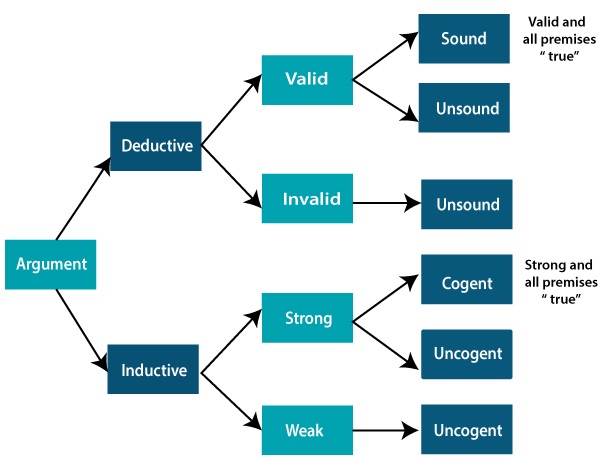More Thoughts On Thinking (Cont.) - Inductive Vs Deductive
Introduction
These 2 types of reasoning (inductive and inductive) are contradictory, ie
"...- deductive reasoning uses available facts, formation, or knowledge to deduce a valid conclusion, whereas inductive reasoning involves making a generalisation from specific facts, and observations
- deductive reasoning uses a top-down approach, whereas inductive reasoning uses a bottom-up approach
- deductive reasoning moves from a generalised statement to valid conclusion, whereas inductive reasoning moves from specific observation to generalisation
- in deductive reasoning, conclusions are certain, whereas, in inductive reasoning, the conclusions are probabilistic
- deductive arguments can be valid or invalid, which means if the premises are true, the conclusion must be true, whereas inductive argument can be strong or weak, which means conclusions may be false even if premises are true..."
(Source: https://www.javatpoint.com/difference-between-inductive-and-deductive-reasoning)
This can be explained in the below diagram

(source: https://www.javatpoint.com/difference-between-inductive-and-deductive-reasoning)
The below diagram is a comparison between deductive and inductive
| Basis for Comparison | Deductive Reasoning |
Inductive Reasoning |
| Definition |
A form of valid reasoning to deduce new information or conclusion from known related facts and information | Arrive at a conclusion by the process of generalisation using specific facts or data |
| Approach |
Follows a top-down approach | Follows the bottom-up approach |
| Starts from |
Premises | Conclusions |
| Validity |
Conclusions must be true if the premises are true | Truth of premises does not guarantee the truth of conclusions |
| Usage |
It is difficult as we need facts which must be true | It is fast and easy as we need evidence instead of true facts; often used daily life |
| Process |
Theory to hypothesis to patterns to confirmation | Observations to patterns to hypothesis to theory |
| Argument |
Arguments may be valid or invalid | Arguments may be weak or strong |
| Structure | Progresses from general facts to specific facts | Reaches from specific facts to general facts |
(source: https://www.javatpoint.com/difference-between-inductive-and-deductive-reasoning)
"...The deducing from axioms means when you come to the conclusion no one can disagree. It is not an opinion. Inductive logic is where you induce from the data the truth as opposed to deducting it. Just cherry pick the data to suit your prejudices......That's what all public discourse is about today..."
Woody Brock as quoted by Matthew Cranston, 2022
Inductive reasoning
"...is particularly suitable for exploring complex activities and interactions - such as relational and competitive dynamics, resource allocation, idea generation, opportunity capture, market expansion and industry formation - in dynamic environments that are poorly understood and about which little theory with publish evidence exists..."
Christopher Bingham et al, 2022a
